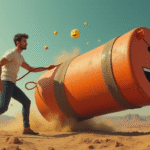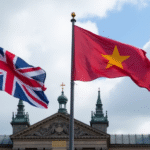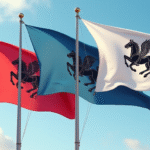Introduction
In a society where gatherings, events, and celebrations are often accompanied by a drink in hand, a growing segment of young people—particularly Millennials and Gen Z—is challenging the norm by consuming less or no alcoholic beverages. This phenomenon is not a fleeting trend but a burgeoning social movement with profound implications for the beverage industry and consumption culture.
The Rise of Non-Alcoholic Choices
The surge in practices like Dry January or Dry November, where individuals voluntarily abstain from alcohol for an entire month, is just the tip of the iceberg. What began as a personal challenge has transformed into a collective statement of well-being, self-care, and control. For many young adults, avoiding alcohol is not synonymous with restriction but a conscious choice to enhance their physical health, productivity, personal image, and even their finances.
Challenges in a Socially Drink-Driven Culture
The decision isn’t always easy. We live in a society where alcoholic beverages remain a social lubricant. Declining a drink can sometimes cause discomfort or social pressure, even in informal settings like dinner with friends or a work meeting with toasts.
Brand Responses to the Trend
Disruptive brands like Liquid Death, which sells canned water with an aggressive, punk-inspired design, have broken barriers. Their goal is simple yet powerful: allow those who don’t drink alcohol to feel included in social moments without feeling out of place. A can of water with a punk aesthetic that’s just as cool as an IPA has built a legion of fans among those seeking alternatives with attitude.
Major brewers are also responding forcefully. In Mexico, Heineken 0.0, Modelo 0%, and alcohol-free versions of Corona or Tecate have bet on formulas that closely mimic the taste of their traditional counterparts. Their bottles and cans are nearly identical to the originals. Why? The ritual matters. Consumers not only want flavor but also crave the experience: opening the bottle, toasting, and integrating into social dynamics without needing justification.
New Consumption Opportunities
This trend doesn’t aim to merely “copy” alcohol but is creating new consumption occasions. Non-alcoholic beverages are no longer limited to those who can’t or won’t drink but are being positioned as versatile products for various times of the day. They can now be consumed at a desk in an office, during a morning meeting, after school, or while driving, without question.
Suddenly, traditional consumption boundaries blur, representing a significant opportunity for brands.
Market Growth and Future Innovations
The non-alcoholic segment still represents a small fraction of the total beverage market in Mexico, especially compared to countries like Germany, the UK, or the US, where the category has been consolidating for longer. However, the figures are promising: the Mexican market for non-alcoholic beverages (within the universe of beers and cocktails) is growing at double-digit rates annually. This growth is expected to continue, driven by young, informed consumers concerned about their well-being.
The category’s future will be shaped by innovation: crafted mocktails, alcohol-free sparkling wines that mimic premium wines, functional beverages combining taste, style, and health benefits. The challenge for brands is no longer just developing the product but creating an aspirational narrative that emotionally connects with this new consumer.
For these consumers, it’s not just about what’s inside the bottle but what it represents: belonging, authenticity, and personal choice.
Key Questions and Answers
- What is the Zero Trend? The Zero Trend refers to the growing movement of young people choosing to consume less or no alcoholic beverages, impacting the beverage industry and consumption culture.
- Why are young adults choosing non-alcoholic options? Young adults are choosing non-alcoholic options for various reasons, including improved physical health, increased productivity, personal image enhancement, and financial benefits.
- How are brands responding to this trend? Brands are responding by creating non-alcoholic alternatives that mimic traditional beverage tastes and experiences, focusing on the ritual and social aspects of drinking.
- What does the future hold for non-alcoholic beverages? The future of non-alcoholic beverages includes innovative products like crafted mocktails, alcohol-free sparkling wines, and functional beverages, all designed to emotionally connect with consumers concerned about their well-being.






